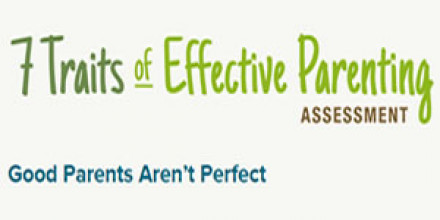Preview:
Dr. Kevin Leman: And all I’m trying to do is teach parents to have a game plan because kids, by their nature, are hedonistic little suckers. They do not come in this world with concern for other people. But that’s our job is to train them up, not train them down. And most of us train kids down. Train them up in such a way that they feel encouraged and loved no matter what.
End of Preview
John Fuller: That’s Dr. Kevin Leman, and this is Focus on the Family. He’ll offer some great advice on how to encourage your child rather than put them down. Uh, your host is Focus President and author, Jim Daly, and I’m John Fuller.
Jim Daly: John, most of us are blessed with one or more powerful children in our families. I’m sure having six kids, you must have had one.
John: You know, we did have a mix-
Jim: (Laughs)
John: And, uh, we had a couple that were very strong. It was, it was amazing. The whole family would come to a screeching halt because this child had this need-
Jim: (Laughs)
John: And it wasn’t being met, or they had to have this argument at this time. It’s really interesting.
Jim: It is. Well, we had two, and we had one strong-willed, and one not as strong-willed. And it was, uh, certainly the same way. You know, Trent was the strong-willed guy, and it had to go his way or the highway.
John: And I’m not sure they’re-
Jim: (Laughs)
John: Always even cognizant that-
Jim: Oh, no.
John: I’m the person.
Jim: Absolutely not. I mean, I invited him to so many things to do with Focus when he was a teenager. And it was so funny because he said, “Ah, Dad, I, I really don’t want to go. I got, I got to study,” or something. And it was going fishing, or something.
John: (Laughs)
Jim: And, and now he’s going, “I was so disconnected. I was so dumb as a teenager not to go with you,” but it’s okay. God has given each of our children, uh, unique personalities-
John: Right.
Jim: And the strength that comes with that strong-willed child is something we need in this world for sure. But sometimes it’s hard to understand that child. Especially when the two of you, as a parent and a child, are butting heads.
John: Mm-hmm.
Jim: It’s vital to learn how to parent that child well, so they will use that strength to serve God and others when they’re adults.
John: Yeah. And as, uh, we heard in that clip at the beginning of the show, you have to be ready. You have to have a game plan, and that’s what we have for you today through Dr. Kevin Leman. He’s an internationally known family psychologist, a New York Times bestselling author, and he is a really popular public speaker and media personality. Of the more than 50 books he’s written, we’re going to have one here that’s really at the core of today’s broadcast. It’s called Parenting Your Powerful Child: Bringing an End to Everyday Battles. We’ll invite you to stop by focusonthefamily.com/broadcast to get your copy. Let’s jump into that conversation, Jim, as you welcomed Dr. Leman.
Jim: Well, Dr. Kevin Leman, welcome back to Focus on the Family. And you’re not talking just about strong-willed children here, you’re talking about something, uh, far broader in the powerful child. What is it?
Dr. Leman: Absolutely. And thank you, Jim, and thank you, John, for having me once again. You know, uh, I think we’ve given the strong-willed child a bad rap.
Jim: (Laughs)
Dr. Leman: Let’s start with that. I think you want your kids to be strong-willed. You want your kid to stand up in this world that says, “Hey, do everything we do and be cool like us.” You want that son, you want that daughter, to be a daughter, a son, of conviction. To know right from wrong. You know, to do the right thing. But the powerful child has an agenda. The powerful child wants to win, control, dominate. If you’re a mommy today, and you’re raising a son, let me be clear on this. If you have a powerful child, he is gonna be a lousy husband because he’s gonna be a controller, and I’ve never heard a woman say, “Dr. Leman, I just love the way my husband controls me.”
Jim: Mm-hmm.
John: Mm-hmm.
Dr. Leman: So, the stakes are high, and here’s the kicker. We, as parents, teach the kids how to be powerful. If you have a powerful child, I got news for you, there’s a powerful parent somewhere nearby.
Jim: (Laughing) And you, you say about 99% of the children are powerful. Along with that, let me, uh… You may have heard some of the giggles in the background. We have about 25, uh, women here to, uh, guide our discussion. We’re gonna ask you all some questions. So, let me say to you, welcome to the studios of Focus on the Family.
Q & A: Thank you.
Jim: (Laughs) So, we’re, we’re really gonna be tested here, Kevin. (Laughs)
Dr. Leman: Well, you know, women are the… They’re the heartbeat of the family. There’s no two ways about it.
Jim: Yes.
Dr. Leman: And, you know, in so many cases… In most cases in families, the kids are much more familiar with mama, so they know how to punch up Mommy’s buttons. They know how to pull her chain, get her going. And it’s amazing how a husband can say something once, and a mom finds herself saying it several times.
Jim: Well, that’s a good place to start. Why is that happening?
John: Mm-hmm.
Dr. Leman: Well, because again, I think we’ve trained kids how to be powerful, and by 18 months… Now, this is pretty young. By 18 months, a kid has full, uh, understanding of great power that they have over the parent.
Jim: That’s hard to believe, though. 18 months?
Dr. Leman: Well, let’s take a picture of this little guy, uh, 17 months of age. Dad’s trying to get him into a highchair to have his dinner. Now, this is a kid who has no intention of going in that highchair, and if there was a sport in the Olympics called-
Jim: (Laughs)
Dr. Leman: Arching your back-
Q & A: (Laughs)
Jim: (Laughs)
Dr. Leman: This kid could win Olympic gold because a 17-month-old kid does not want to go into that chair, can contort their body in such a way they look like a pretzel. Okay?
Jim: (Laughs)
Dr. Leman: And there’s dad battling, trying to get this kid in. And Mommy, just trying to be a good Mom, says, “Honey, why don’t you just give him to me? I’ll take him, honey.” And she takes little Fletcher, and puts little Fletcher on her lap, and proceeds to feed little Fletcher spoon by spoon. Now, everybody in the room, be little Fletcher for just a second. Would you rather sit on Mommy’s warm lap and be spoon-fed, or sit in a cheap, plastic chair they bought at Walmart?
Jim: (Laughs)
Q & A: (Laughs)
Dr. Leman: So, in other words, we have reinforced the kid fussing the same way we do in the mall when a kid throws a temper tantrum because he wants a candy treat and we said, “No, we’re not gonna get a candy treat, and that’s it. That’s final.” Okay? There’s a big stir, people are watching. Okay? And you feel pressure as a parent, “All right. All right, but then there’s no more candy for life. Do you understand me? No more candy for life.”
Jim: (Laughs)
Q & A: (Laughs)
Dr. Leman: So, not only do we cave into the kid, but we say stupid things to them.
Jim: Oh, man. You’re hitting me right between the eyes. (Laughs)
Q & A: (Laughs)
Jim: Guilty.
Dr. Leman: About the highchair, or the candy-
Jim: Yeah, both.
Dr. Leman: Or all of it? Yeah.
Jim: But it is true. Now, why is parenting any different today than it was many years ago? Are we busier today, so we’re giving in, or are we just weaker?
Dr. Leman: Well, I think there’s parents tonight who were lying awake, looking at the crack in the ceiling feeling like General Custer on his last day on this Earth. If you’ve ever played Whack-A-Mole in an amusement park-
Jim: Mm-hmm.
Dr. Leman: Being a young parent today with multiple children is like playing Whack-A-Mole. Whack, whack, whack, whack. And as soon as you whack one, the other one pops up.
Q & A: (Laughs)
Dr. Leman: So, it’s tremendously different because the culture we live in has such great influence over our kids. Take something as innocent as playing soccer, and you find out that your little son, little Beauford, has just been selected for city-wide soccer. Ooh.
Jim: (Laughs)
Dr. Leman: And this means, now, that the next 10 weekends of your life are gonna be-
Jim: Mm-hmm.
Dr. Leman: Traveling to another city over the weekend. Okay? So, all focus is on soccer, and where’s the room for all mighty God in that kid’s life? Where’s the room for anything that’s worthy on that Sunday, in terms of attending church, and so I say culture dominates an awful of, of what we have to face as parents. Plus, the cell phones, the Instagram, everything.
Jim: Mm.
Dr. Leman: It’s just changed so rapidly.
Jim: Now, you’ve talked about children being those manipulators. Uh, let’s apply that spiritual component to it. Why? Why are we all sinners that give birth to sinners, and why are these little rascals so good at 18 months, they can manipulate us the way you described.
Dr. Leman: Well, the first born, let’s start with that. It’s the lab rat of the family.
Jim: (Laughs)
Dr. Leman: You know? We’re new at being, uh, parents, and we’re surrounded by women here in the Focus on the Family studio. And if you’ve given birth, that’s not a piece of cake to begin with.
Q & A: (Laughs)
Dr. Leman: But that 19 and a half incher is laid across your lap, and the lactation nurse was supposed to visit you, you never saw the woman.
Q & A: (Laughs)
Dr. Leman: Your insurance company throws you out the door within about 48 hours. And all of a sudden, you’re awestruck that you have this tremendous responsibility with this little child whose little lip was quivering. And you instantly fell in love with this little girl, or this little guy. And you go home, and you’re trying to be the best mom you can possibly be. And this is where it starts because I think a lot of parents who have very powerful children, have just erred in trying to do way too much for their children, trying to make sure they’re happy, happy, happy at every turn. In my book, uh, Have a New Kid by Friday, the best line in that books is, “An unhappy child is a healthy child.”
Jim: Yeah.
John: Mm.
Dr. Leman: And there’s times your son or daughter has to be miserable, quite frankly, and unhappy. Why? Because they disobeyed you, they talked back to you. So, part of the problem, Jim, is that we start off practicing on these little lab rats. We have high expectations. The kid’s new at being a kid, you’re new at being a parent, and that’s a perfect storm for a lot of excitement down the road.
Jim: Well, and in your book, Parenting Your Powerful Child, you describe it this way, which I think is funny. Uh, one of the personality types, “Aggressive, temperamental, curve ball manipulator,” um, (Laughs) and that’s pretty good.
Dr. Leman: No, yeah. And some of these manipulators, the, the curve ball guy in particular, he’s the one that… You know, here’s a kid that’s pretty obedient, uh, seems to just sort of, you know, go with the flow. And all of a sudden they hit age 10, age 11, age 12. The hormone group, the pubescent. And all of a sudden, the grades drop off the shelf.
Jim: Mm-hmm.
Dr. Leman: The kid has an instant attitude, and you say, “Where’d this kid come from?”
Jim: (Laughs) That’s-
Dr. Leman: That’s why I call him the curve ball. But then you’ve got the eggshell, uh, the sensitive one. “Oh, Dr. Leman, uh, Melanie is a very sensitive daughter. Very sensitive girl.” When I hear that, I reach for my wallet.
Jim: (Laughs)
Dr. Leman: (Laughs) I’m protecting my wallet because I don’t trust this kid.
Q & A: (Laughs)
Dr. Leman: And, and, and when you talk to somebody, and you hear that this kid is sensitive, be careful because you have a powerful little buzzard on your hands. A kid who can use the sensitivity and the tears to work you.
Jim: Well, you’re talking about real manipulation though. How does a parent, and at what age do you engage to show that child that manipulating me that way-
Dr. Leman: Let, let me ask you-
Jim: Is not gonna work?
Dr. Leman: Let me ask you a question first. How do you feel when Jean cries?
Jim: Oh, tender. “What, what can I do for you?”
Dr. Leman: Yeah.
Jim: Or “What do I need to do to fix it?”
Dr. Leman: Do you think that women can use tears to bring man-
Jim: (Laughs)
Dr. Leman: To their knees? And that’s all-
Jim: Well, ladies, what do you think?
Q & A: Yes.
Dr. Leman: Yeah.
Jim: (Laughs)
Dr. Leman: Yeah. And so-
Jim: Good.
Dr. Leman: I think we all had to pony up and understand that-
Jim: (Laughs)
Dr. Leman: You know, manipulation is very, very possible, especially for youngest children in the family. Your oldest children tend to be more rule oriented, and more precise, and perfectionistic. It’s us babies, you know, who could sell dead rats for a living if we had to.
Q & A: (Laughs)
Dr. Leman: And they, and they earn a living looking up because your youngest child looks up and sees the middle child, or sees the next child in line, and they go out of their way to be different. And kids, many times, will throw out a bone, so to speak, to see if we’ll bite. And when we do, okay, game is on. We are gonna clash. And here’s the other thing, the kid that’s most like you, mom… The kid that’s most like you, dad, is the one you’re probably gonna clash with.
It’s the similarities, and that, that’s where birth order fits in this paradigm. That we tend to… Mommies tend to hit it off better with sons, daddies with daughters, those key relationship in families. So, again, it’s the opposites that attract psychologically. So, keep in mind that kids will bait you, and they’ll sucker you. And so, one of the things that I like teach parents is that when a kid says something really stupid and ridiculous, which is every day.
Jim: (Laughs)
Q & A: (Laughs)
Dr. Leman: You can take a look at that kid and say, “Wow. Interesting. Interesting.” Don’t go there. Don’t try to over control. Now, again, we have authoritarian parents, which most of us in this room grew up with. “Oh, I ain’t listening.”
“You are gonna do-”
Jim: (Laughs)
Dr. Leman: “What I tell you to do as long as you live under this roof. Do you understand me? Hey, don’t make me come over there. Hey, you want something to cry about? I’ll give you something to cry about.”
Q & A: (Laughs)
Dr. Leman: Now, you know, the laughter behind says, “Hey, I can identify with that.” And see, this is what people need to understand, that isn’t Godly. That doesn’t reflect God’s teaching. But neither does the permissive, you know?
Jim: Give us an example of that. What does that sound like?
Dr. Leman: Oh, the permissive is, uh, “Oh, Brittany, sweetheart, it’s 8:00 PM. Have you chosen to go to bed yet?”
Q & A: (Laughs)
Dr. Leman: Or how about, “Hey, would you turn that music down? I’m trying to finish your science project.”
Jim: (Laughs)
Q & A: (Laughs)
Dr. Leman: So, so we have parents, and here’s the kicker. If you bring up your kid in an authoritarian manner, they’re going to rebel. They’re gonna be powerful, rebellious kids. If you’re permissive with them, and here’s the kicker…
Q & A: (Laughs)
Dr. Leman: They’re gonna rebel if they’re permissive. So, the only way that really reflects God’s teaching is to move toward the authoritative parent style. And-
Jim: Authoritative, not-
Dr. Leman: Not authoritarian.
Jim: Authoritarian?
Dr. Leman: So, you’re in healthy authority over your kid. You don’t let your son or daughter run over at any time, mom. Okay? You establish healthy authority, and I think that’s what St. Paul was trying to tell us in Ephesians 6 where he says, “Children, obey your parents. It’s the right thing to do because God has placed them in…” What? “In authority over you.” So, are we talking about being namby-pamby? No. Neither is God’s word because it says, “Every knee shall…” What? “Shall bow.”
Jim: Mm-hmm.
Dr. Leman: That’s the goal.
John: Well, we’re right in the middle of a very interesting conversation with Dr. Kevin Leman on today’s Focus on the Family with Jim Daly. I’m John Fuller, and, uh, Jim, you and I have children that fit the categories that Dr. Leman has identified to this point.
Jim: (Laughing) Uh, speak for yourself, John.
John: We… (Laughs) We, We did some chatting off here, and I’ve appreciated the overview of some of the parenting styles because I’ve, I’ve been guilty of, you know, finger in face, saying, “You got to do what I say.”
Dr. Leman: We all have.
John: There’s something for every parent here, and some ways to deal with, uh, pretty much every child because your premise, Dr. Leman, is that every child is powerful. You may not see it on the surface, but they’re all trying to manipulate.
Dr. Leman: Every kid starts off an attention getter. You have to understand that all kids want attention. The question is, does the child get attention positively or negatively? Once they get negative attention, then they’ll escalate to be a powerful child. So, the powerful child, again, says, “I only count life when I win, control, when I dominate.” The attention getter says, “I only count life when I’m noticed.” So, your own feelings… This is unique about this book. Your own feelings as a mom or a dad can tell you if you have a powerful child or not. Do you feel annoyed by the behavior? If you do, you have an attention getter. But if you feel like you’d like to take that little nose and rub it in it, so to speak, and “You can’t do that to me. Do you know who I am? I am your mother-
John: (Laughs)
Dr. Leman: I am your dad.” You got a powerful child on your hands.
Jim & John: (laughs)
Dr. Leman: That’s the problem.
Jim: Well, and you’ve talked about that. You’ve talked about the aggressive temperament. You’ve talked about that sensitive eggshell temperament. Uh, that stubborn procrastinator/manipulator. You’re touching on that, but I think our boys are more in that category.
Dr. Leman: Probably the tougher.
Jim: Yeah.
Dr. Leman: There’s kids, Jim, you could beat them with a stick-
Jim: Well, does this come down to, you know… It’s, uh, “We asked you to clean your room at 9 o’clock and it’s now 2:00 in the afternoon. Did you get it done?” But “Oh, yeah. I forgot…”
Dr. Leman: But, but here’s what we do. Most of us ask kids questions. Now, if you want something controversial, Leman says on Parenting Your Powerful Child, don’t ask your kids questions. Now, again-
Jim: Make statements.
Dr. Leman: We’re, we’re surrounded by women. I’m surprised we haven’t been attacked at this moment-
Q & A: (Laughs)
Jim: (Laughs)
Dr. Leman: Because that’s like asking a fire not to burn because women love to ask questions. “Oh, Dr. Leman, I’ve heard you on Focus on the Family over the years, and I’ve read a few of your books. And I really appreciate your wisdom. But when you say, ‘Don’t ask questions,’ I respectfully, respectfully disagree with you. Because, like, when, um… When Melissa comes home from school, I always ask her, ‘Honey, how was your day?’ I want to show interest-”
Jim: Well, that’s a good question.
Dr. Leman: Okay. Yeah, but what does the kid say? “Fine.” “What’d you do in school today?” “Nothing.” Teenager – “Where you been?” “Out.” “What’d you do?” “Nothing.”
Do you wanna ask questions? Go ahead. Here’s the kicker… “Tell me more about that?” It’s a new way of talking to your kid. When a kids says something interesting you say, “Honey, uh, tell me more about that.” I think it’s ironic because, “Tell me more about that” is a command in the English language. And so the question thing needs to be tucked away.
And you’ll be surprised, if you just back off a little bit, kids wanna be affirmed by you. They want you to enjoy them, and they want you to be happy. So an, an obvious conclusion is sometimes you look at kid and say, “I am very unhappy with what just went down here.” Give them the look, turn your back, and walk away. You’re raking coals over the kids when you do that.
John: Okay, now… But I’m gonna bring you back to the procrastinator.
Dr. Leman: Yes.
John: So, let’s say that you don’t ask the question-
Dr. Leman: Right.
John: Could ask them to get, you know, “Make sure you get your homework done.”
Dr. Leman: Okay. Let me get-
John: It’s not a question.
Dr. Leman: Yeah, let me give you two examples and then I’ll add you something else. In rearing five kids, I never asked any of my kids, “Do you have homework?” I never asked that question. And they all did well and the last one won an $80,000 scholarship to school, okay? Let’s start with that.
John: Are you guaranteeing this? (Laughs)
Dr. Leman: Well, this… I’m telling you, there’s… We spend our time trying to micromanage kids. Kids need to know that they have homework to do, et cetera. But here’s a kid who’s nine years old, who’s supposed to clean his room on Tuesday and Saturday. It’s not done. No reminders in this system, none. It’s not done on Tuesday and nine-year-old has neglected to do what she’s supposed to do. And you, as money manager of the home, you go and you hire seven-year-old to go in and clean nine-year old’s room. You pay for it, without fanfare, out of nine-year old’s allowance.
Jim: So, don’t put it in their face. You just do it.
Dr. Leman: Right. But when they find out they lost money to their sister, brother, who they really don’t care for that much to begin with, you made some in roads.
The 17-year-old who’s supposed to clean the garage, who was supposed to do it last Spring, and now the snow is about to fly. He’s looking for the car keys. It’s 6 o’clock that night. He, he was supposed to clean the garage. He doesn’t do a lick and now he’s got a date. He’s got plans, “Dad, where’s my keys?” “Honey, you’re not gonna find the keys. They’re right here in my pocket.” “Well, give them to me. I’m late.” “Honey, you were supposed to clean the garage today. I see you didn’t do a lick.” He’ll promise you anything at that point.
John: Mm-hmm.
Dr. Leman: He’ll promise you… he’ll repair the roof, he’ll…
Jim: (laugh)
Dr. Leman: …he’ll, uh, paint the garage. He’ll, uh, he’ll pull weeds for life. “Just give me the keys of that car.” And that’s what I call sticking to your guns without shooting yourself in the foot. And that’s how you establish authority. God didn’t put us on this Earth to be run over by you, 17-year-old. So, don’t be afraid to pull a rug out.
Jim: Now, the one issue there, so many parents… That’s hard to do. Why is that hard to stick to your guns? What are we doing as parents to manipulate our environment?
John: Mm-hmm.
Dr. Leman: Hm. Well, which one’s the monkey and which one’s the organ grinder? As I look at kids today, kids shorter than a yard stick are in full control of adults. And they whine. Whining doesn’t continue unless it’s paid off. Maladaptive behavior doesn’t continue unless it’s paid off. We remind and coax. Many listeners are, are the human alarm clock for their kids to try to get them out the door in the morning. If you had Kevin Leman with you for a day, I’ll tell you what would happen. That… You wouldn’t wake the kid up. You say, “Leman, wait a minute. Wake him up, he’ll be late for school.” Oh, how soon you’ll catch on. But, uh, yeah, he’s not gonna be happy. But you tell him, “Hey, I’m not playing this game any longer. I’m done.”
How do you feel after you scream and yell at your kid all morning to get them out the door? So, why not do some rug pulling? Write a note to teacher or principal that says, “Anthony has absolutely no reason to be late today to school. He chose to sleep in. Feel free to do whatever you do to kids who are legally tardy. Love, Mom.”
Jim: (chuckling)
John: (laugh)
Dr. Leman: And put the put the tennis ball life on his side of the court.
John: It seems awfully abrupt if we have, say, a teenager who’s been procrastinating…
Dr. Leman: Right.
John: … for their entire life. We’ve trained them to do this. Should there be a re-entry? I have a friend who’s child doesn’t clean their room and time again, they’re told, “Clean your room.” So, here’s a 12-year-old who doesn’t clean their room…
Dr. Leman: Well, okay.
John: What… Shouldn’t we be gentle here?
Dr. Leman: Well, you could clean it for them like it’s never been cleaned before, just like the kid who refuses to brush his teeth at age four. I could brush his teeth like they’ve never been brushed before. That might get his attention. So, yeah, it is abrupt. And when you have a kid who’s had 14 years of procrastination, please don’t think that reading Parenting Your Powerful Child and listen to Kevin Leman is going to instantly change this kid who’s procrastinated for 14 years. But what’s gonna happen is you’re gonna take the joy out of procrastinating in his life.
John: Mm-hmm.
Dr. Leman: And that’s what you need to focus on. And those behaviors can turn, okay? I wrote all those books on Have A New Kid By Friday and Have A New Teenager By… I always told people they’re scams because it doesn’t take five days. You can do it by Wednesday, two days. And most behaviors you can turn around.
When you have these kids who are just driven toward defeating themselves, and that’s what these procrastinators do. And a lot of them don’t measure up because they feel if they measure up, you’re always going to make them measure up and there’s the pressure. So, these are your slobs. These are your kids who live in piles. And you adults, you know who I’m talking about, in your desk, you have piles all over your desk. Someone asks you to find something, you know exactly which pile to look in with equal ease. Well, why is that? Because you grew up with a critical eyed parent. A parent that could spot a flaw at 50 paces. So do you want to be a flaw picking mom or dad? No. You want to be encourager. Give that kid vitamin E and stand with your kid.
Jim: Hm. Kevin, this is great, great stuff. Uh, when you look at, uh, parent that, um, feels like your giving up the right to be right. Um, how do you calm yourself down in that moment? Um, because I know, even in our household, when we have some conflict with the boys over something, uh, so often Jean, she will get that point where man, she’s just so frustrated. You moms like that?
Dr. Leman: Mm-hmm.
Q & A: Yes.
John: You get to that point and you’re just so frustrated.
Dr. Leman: We cave. We cave. We give in, but, uh, I think sometimes you say to a kid, “You know, you could be right.” Because they’ll throw stupid things out to you, okay? And, uh, a kid who, you know, you remind every day, “The bus is gonna be here in 19 minutes.” You know, and you do that whole dog and pony show, you might walk in very glibly some morning and say, “Honey, I don’t know if you wanna… If you’re interested, but it’s 8:20 AM.” Turn around, walk away. You call them for breakfast and he comes out 20 minutes later, okay? And he says, “These pancakes are cold.” “Really? My, mine were warm and tasty.”
John: Hm.
Dr. Leman: Do you see what I’m saying? You could learn to talk to kids differently. And I think that’s the encouraging thing. And again, for those of you who don’t know, I graduated fourth from the bottom of my class in high school. Was going nowhere, fast. I uh, I was thrown out of Cub Scouts. You can imagine what kind of kid I was.
Jim: Thrown out of out of, out of Cub Scouts.
John: (laughing)
Dr. Leman: That’s bad. Thrown out of fourth grade. I did a lot of things, but my, I had a mom who loved me anyway. And isn’t that true of Almighty God? Doesn’t he love us, anyway? And I think there’s times you wanna string your kids up, let’s face it. They just… They’re a little too much and I said in a book that sold well over a million copies years ago, Making Children Mind Without Losing Yours. I said, “We have seen the enemy and they are small.”
Jim: (Laughs)
Q & A: (Laughs)
Dr. Leman: And today, they’re unionized. And-
Q & A: (Laughs)
Dr. Leman: And you better have a game plan. And all I’m trying to do is teach parents to have a game plan because kids by their nature are hedonistic little suckers. They do not come in this world with concern for other people. But that’s our job is to train them up, not train them down, and most of us train kids down. Train them up in such a way that they feel encouraged and loved no matter what.
John: And we’re gonna pause right there for today’s conversation with Dr. Kevin Leman and pick it up tomorrow on Focus on the Family. Um, Dr. Leman has such fantastic insight and advice for all parents to really integrate into our daily lives.
Jim: Yes, he does, John. And it’s so important to parent and discipline well, of course. But part of that includes encouraging your child in the right way and I love how Dr. Leman touched on that.
And let me turn to you, the listener. This is why Focus on the Family exists. We want to equip you and help you be the best parent you can be so that you can have a strong, thriving family. That’s the goal. Uh, we have a number of resources to help you sharpen your parenting skills.
John: Yeah, over 45 years we’ve been able to assemble a, a great list of resources and one of those is our-
Jim: (Laughs)
John: Seven Traits of Effective Parenting assessment which takes just a few minutes of your time and you’ll see where you’re doing well and some actions steps to take in areas that might need some improvement.
Jim: We also have, uh, the wonderful book by Dr. Kevin Leman that we talked about in today’s program. It’s called Parenting Your Powerful Child: Bringing an End To Everyday Battles. So true. Uh, this book is great for any stage you’re at in your parenting journey and you can get that directly from Focus on the Family. And when you do, the proceeds go right back in the ministry.
As we approach this Thanksgiving and Christmas season, and it’s more important than ever to share the hope that Jesus Christ came to give all of us. With overwhelming inflation, high costs for food and fuel, political turmoil, and continued health concerns, families are struggling. But you can come alongside those facing challenges and give these families hope through your support of Focus on the Family.
John: And, you know, thousands of people reach out to Focus on the Family for help by phone, by mail, by email. Couples heading for divorce, uh, parents who are stressed, moms considering an abortion, and so many others need your help.
Jim: Your support today will provide scripture-based resources, and programs to save and strengthen families. Uh, if you can make a monthly pledge, that is so helpful. It allows us to plan and budget for the year ahead to help these families, uh, that are just like yours.
When you make that pledge today, and any amount helps, we’ll send you a copy of Kevin Leman’s book, Parenting Your Powerful Child, as our way of saying, “Thank you for supporting the Ministry of Focus on the Family and giving families hope.”
If you’re unable to commit to a monthly amount, we get that. Uh, one time gift we will send the book as well. So, on behalf of the families you’ll be reaching through Focus on the Family in 2023, let me say thank you.
John: And through a special year end matching opportunity right now, your gift will be doubled dollar for dollar and God’s gonna use your gift to be healing and redemption to twice the families.
To take the seven traits of effective parenting assessment or to donate and get your copy of Parenting Your Powerful Child, call 800, the letter A, and the word FAMILY. 800-232-6459 or visit focusonthefamily.com/broadcast.
On behalf of Jim Daly and the entire team here, thanks for joining us today for Focus on the Family.
I’m John Fuller inviting you back as we continue the presentation with Dr. Kevin Leman and, once again, help you and your family thrive in Christ.





















